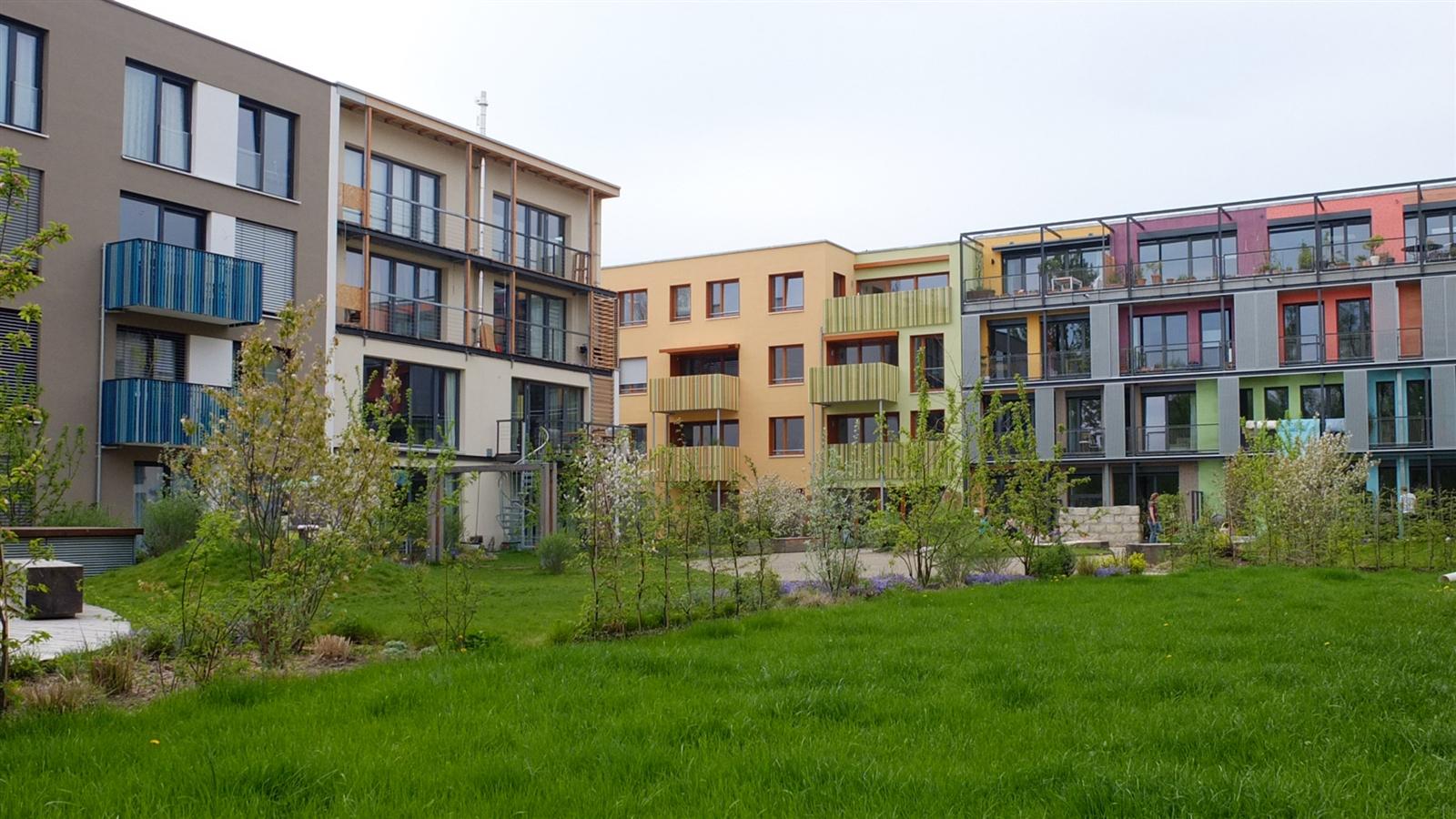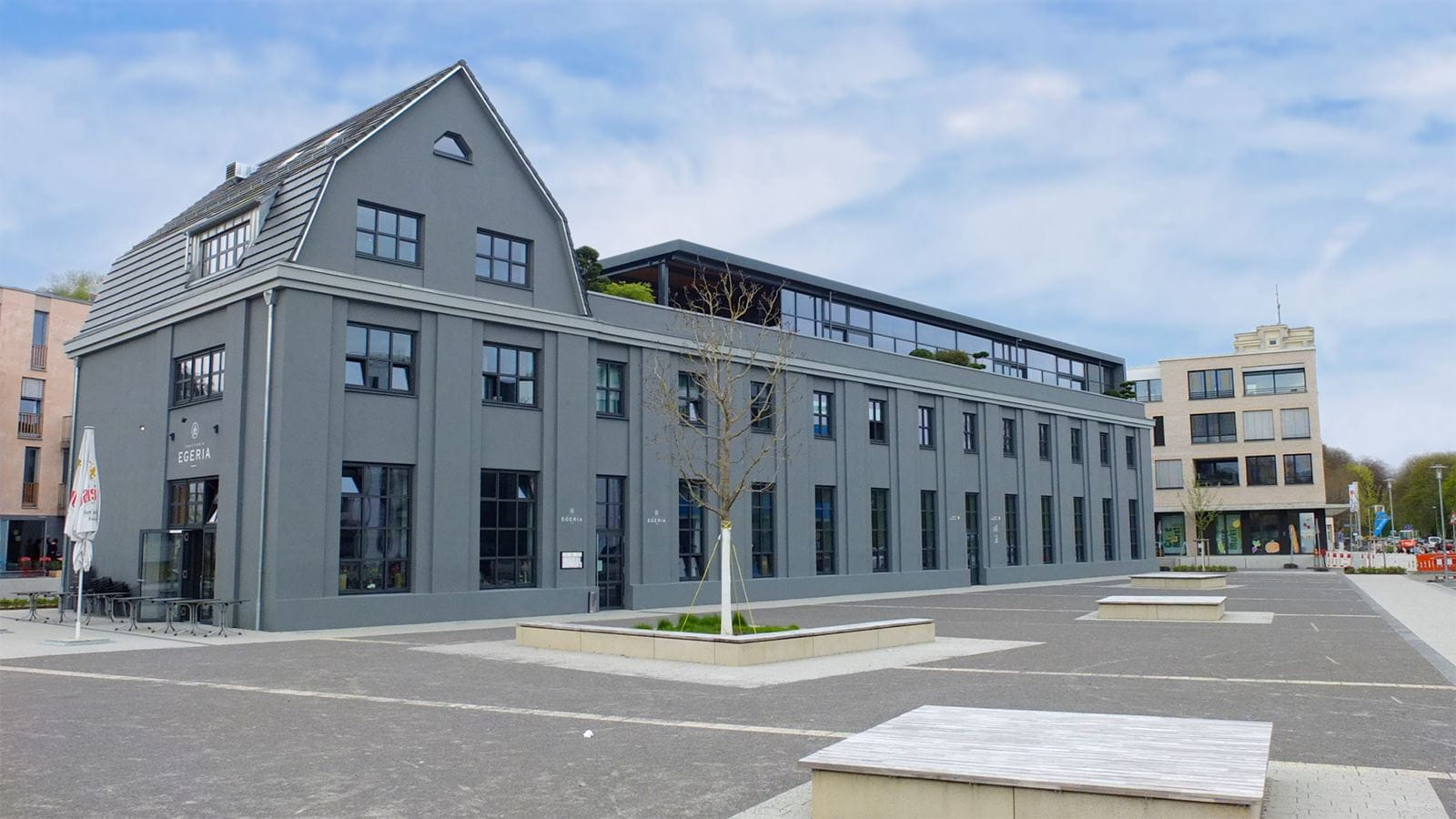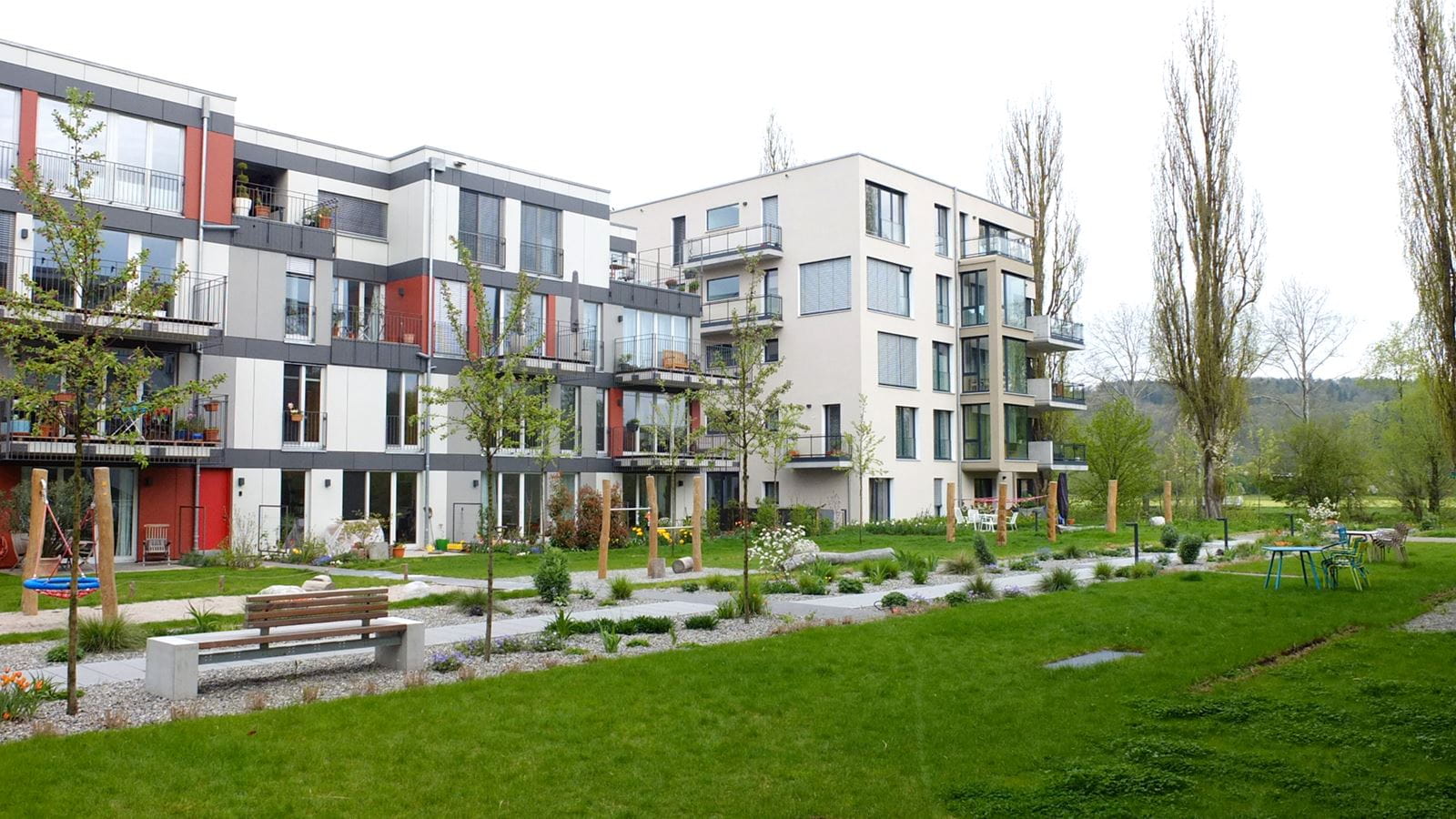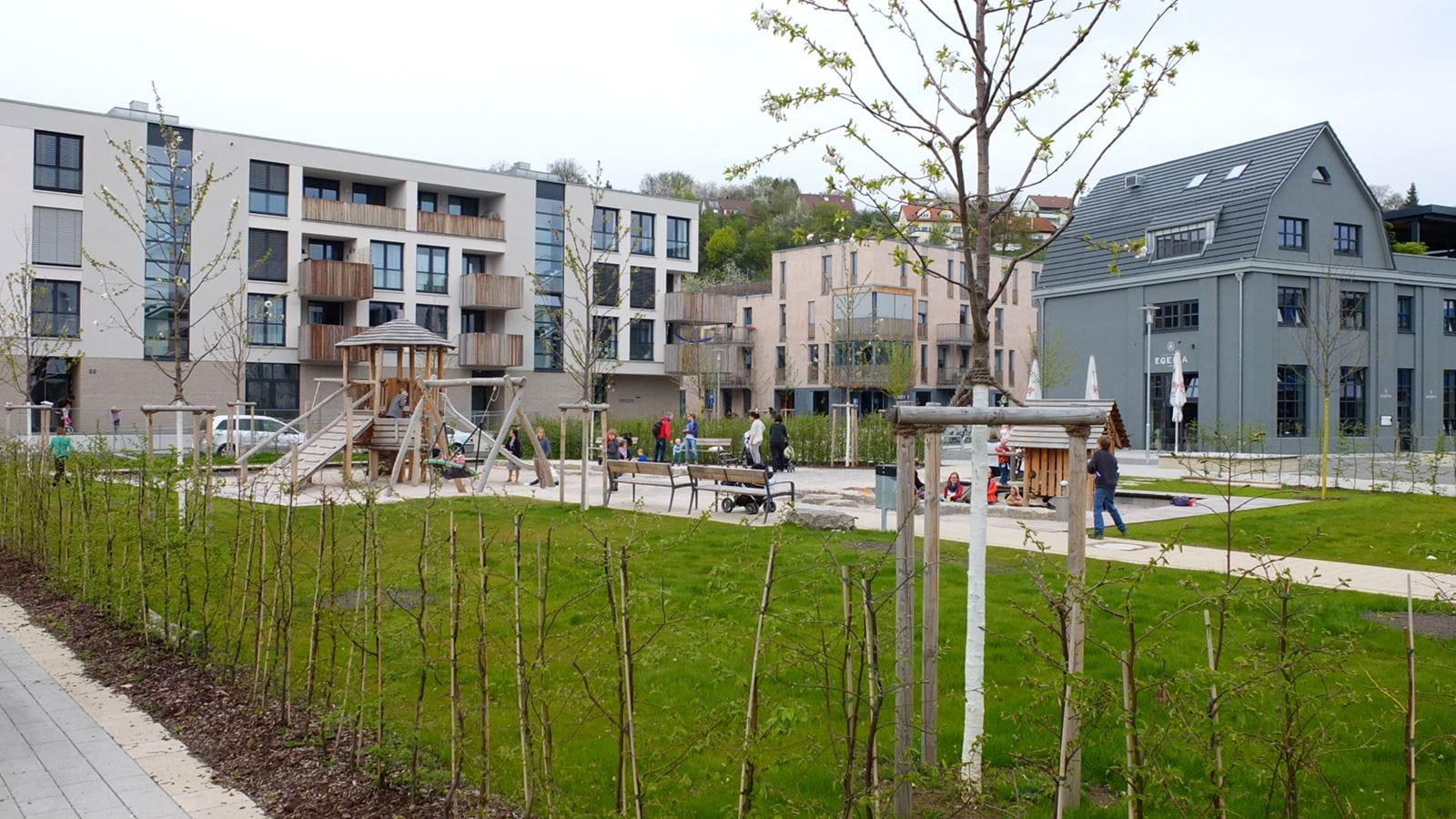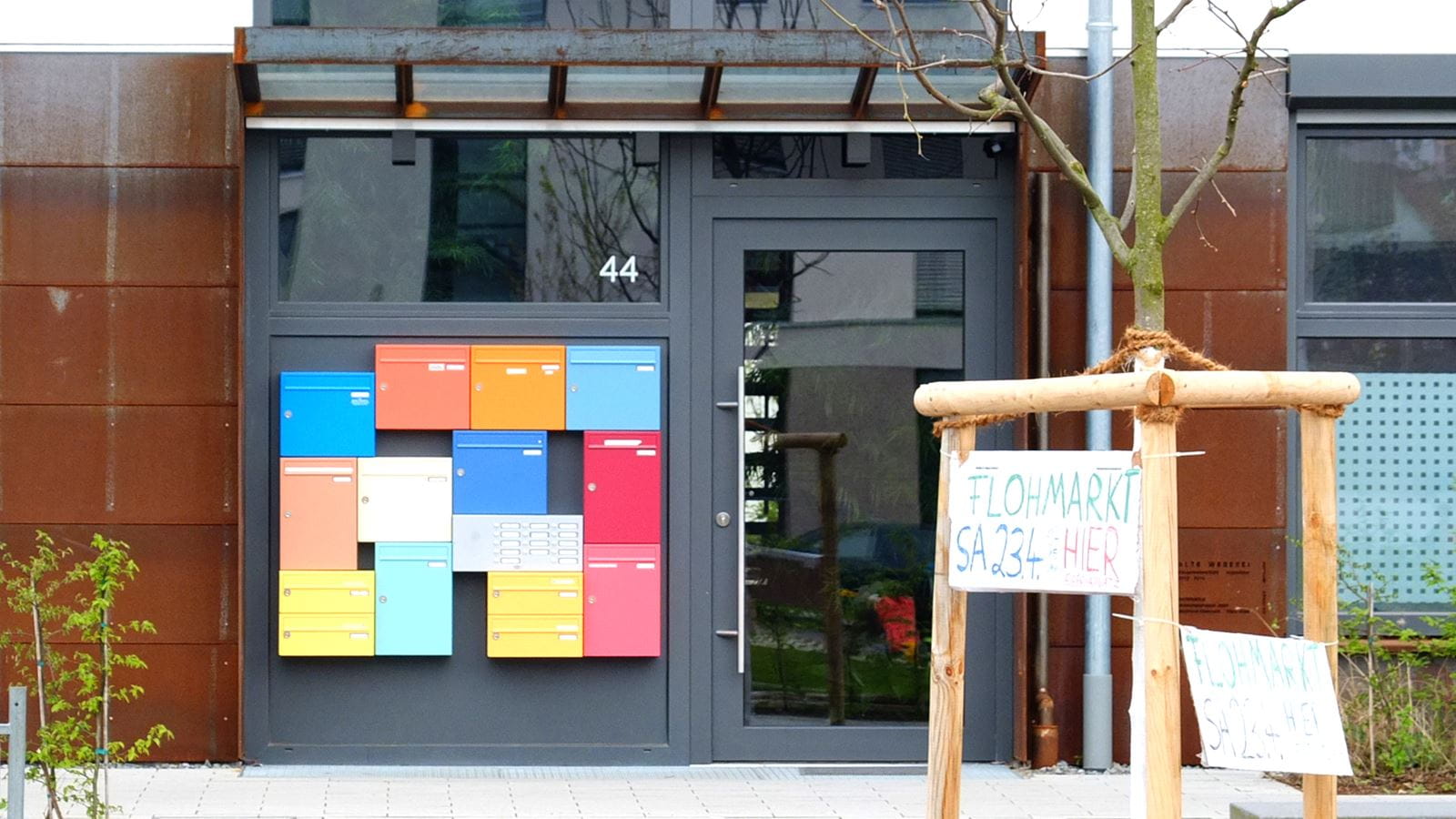The Old Weaving Mill in Tübingen: Keeping It Colourful on Site
Known for cotton terry since the golden 1920s, the Egeria weaving mill was one of the largest industrial employers in the German city of Tübingen for years. In 1990, Egeria was closed down and the site was left derelict. It was only in 2009 that the Tübingen city council decided to redevelop the area into an attractive living and working environment for future residents in a project valued at €20 million.
CDM Smith was commissioned with assessing the site and buildings for contamination as early as during Egeria’s insolvency proceedings. Brownfield redevelopment planning began once the city council had purchased the site, but the disused industrial plant and buildings were in extremely poor condition and required complete demolition. The former Neckar riverbed carried old deposits, and the site’s subsoil was contaminated from the site’s previous industrial use. Apart from securing the site grounds, the construction project required 75,000 m³ of soil to be remediated by excavation while protecting the groundwater from long-term contamination. Again, CDM Smith was commissioned for consultation and planning.
The project has demonstrated the full range of challenges in turning a problematic brownfield site into an attractive city district. Intelligent solutions were found for the contaminated area and in filled river branches and for the watercourse and flood protection.
The city council organised an urban development competition. CDM Smith was chosen for the site investigation and the site development. Our main tasks included planning, tendering and supervision of the entire demolition and soil remediation phases, including soil management. We also created a geoinformation system for the project area for construction planning and provided complete geotechnical consulting services for subsequent builders. The properties were returned to the individual building associations after we had completed our activities in 2014.
The "Alte Weberei" or “old weaving mill” as it is known today has now become an attractive living and working environment for around 800 people after redevelopment, leaving hardly a trace of its previous industrial use. An old building marking the centre of the large Egeriaplatz square and the striking Egeria tower are all that remain as cultural monuments.

The project is an example of a far-sighted and sustainable redevelopment in an urban setting - a great success.
Award
In 2016, the project "Alte Weberei" received the brownfield redevelopment award from the state of Baden Wurttemberg. In their statement, the jurors praised the intelligent remediation solutions for the challenging contamination of the former production site as well as the complex project development. 31 projects were submitted for the award.

